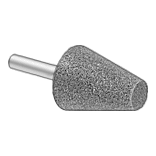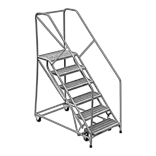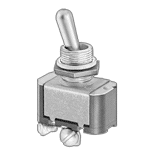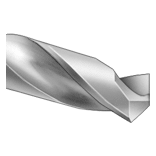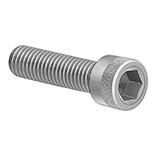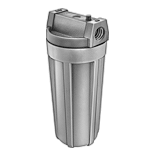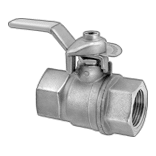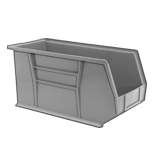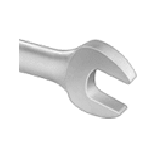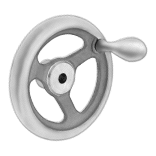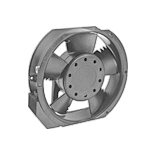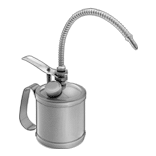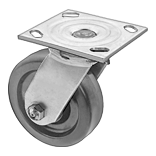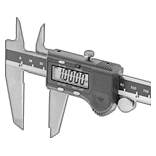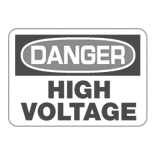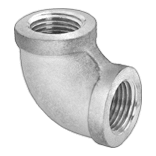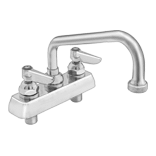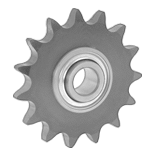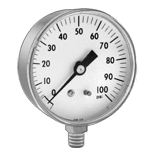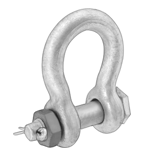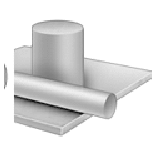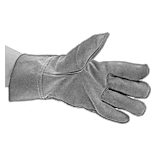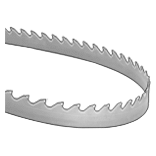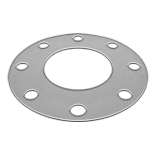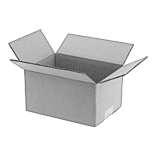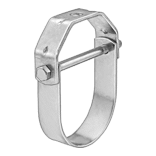About Wire and Cable
More
Stretchable Cable


- Use For:
Unshielded: Panel and Equipment (Hook-Up), Automation, Continuous Motion
Shielded: Panel and Equipment (Hook-Up), Automation, Continuous Motion, Interference Shielding - Continuous Flex
- Temperature Range: -30° to 175° F
- Insulation:
Outer: Polyurethane Rubber
Inner: Polypropylene Plastic
This cable can be stretched by about 40% and return to its original length, making it useful for applications where cable is in motion. It's often sewn into garments or used with equipment that must be worn. The stretchable properties give it a long flex life. Vibration and motion won’t degrade signal transmission.
Use unshielded cable in applications where signal interference is not a concern.
Shielded cable has a layer of foil that blocks signal interference from nearby equipment and devices.
Pinch clamps (sold separately) act as ferrules to hold insulation in place in continuous-motion applications. Crimp the pinch points on the clamp to install.
Miniature Cable

- Use For: Automation, Interference Shielding, Continuous Motion
- Continuous Flex
- Temperature Range: -40° to 220° F
- Insulation: PVC Plastic
Often used in computers, small electronics, and electronic prototyping, this cable is very flexible with small gauge wire to handle tight curves in narrow spaces. It withstands continuous motion, so it’s also commonly used around heavy vibration and in automated tasks, including robotics. A braid shield blocks interference from nearby equipment.
For technical drawings and 3-D models, click on a part number.
High-Voltage Continuous-Flex Flat Cable


- Use For: Automation, Continuous Motion
- Continuous Flex
- Temperature Range: -85° to 325° F
- Insulation: Silicone Rubber
A thick outer layer of silicone rubber insulation protects this cable from high voltages while remaining ultra flexible. You'll often see this cable used in harsh environments with tight turns, from robotics and aerospace to oil rigging, because it won't break down from chemicals, oil, moisture, or UV light. It stands up to continuous motion without degrading data or signal transmission.
This cable meets UL 94 V-0 for flame retardance. If it is exposed to flames, it minimizes how much smoke and halogen it releases. It also meets clean room standards because it releases minimal particles into the air.
Bend radius is the point to which the cable will bend without being damaged. It is measured from the center of the bend to the edge of the cable. The smaller the measurement, the tighter the bend.
Per Ft. | |||||||||||||||
|---|---|---|---|---|---|---|---|---|---|---|---|---|---|---|---|
| Wire Ga. | No. of Wires | Cable AWG | Current | Wd. | Thick. | Bend Radius | Outer Insulation Color | Performance Properties | Environment | Environmental Rating | Specifications Met | Length, ft. | 1-99 | 100-Up | |
Stranded Wire | |||||||||||||||
12,000V DC/17,000V AC | |||||||||||||||
| 28 | 3 | 28/3 | 5 A @ 86° F | 0.18" | 0.08" | 0.8" | Clear | Low Smoke/Zero Halogen | Clean Room | Fed. Std. Class 1, ISO Class 3 | UL Recognized Component, CSA Certified, UL 94 V-0 | 00000000 | 00000 | 00000 | |
